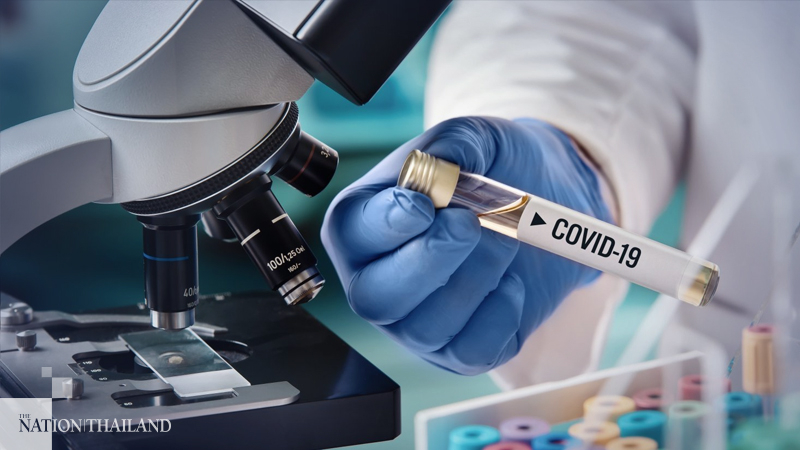Pfizer, BioNTech reach $1.95 billion covid-19 vaccine deal with U.S. government

Pharmaceutical giant Pfizer and German biotechnology firm BioNTech will supply the federal government with 100 million doses of coronavirus vaccine under a $1.95 billion deal announced Wednesday, the administration's largest investment yet in a vaccine that has not been proven effective.
The government also has an option to acquire an additional 500 million doses of BNT162, as the vaccine candidate is called. It still must secure regulatory approval or authorization that Pfizer projects it may seek as early as October.
The agreement could allow the U.S. to buy a large portion of the vaccine Pfizer plans to make through the end of 2021 and comes on top of the government's vaccine contracts with AstraZeneca for 300 million doses and Novavax for at least 100 million doses.
"All of this runs a very high risk of excluding people in the developing world," said Peter Lurie, president of the Center for Science in the Public Interest. "Basically, certain rich countries are snapping up the candidate vaccines. It may leave people, who by then are at higher risk, with no protection."
The U.S. government is effectively paying an implied price of $19.50 per dose for the vaccine under the agreement, although the companies said Americans would receive the shots free. Bloomberg Intelligence analysts wrote in a note that agreements between the United Kingdom and GlaxoSmithKline imply a price of $10 a dose and a candidate from AstraZeneca appears to be priced at $3 to $4 per dose.
"It's one thing to make a profit off this vaccine, it's another to profiteer off a pandemic," said Ben Wakana, executive director of Patients For Affordable Drugs, an advocacy group. "This isn't business as usual. This is a pandemic."
During a congressional hearing Tuesday, executives from several major pharmaceutical companies would not commit to providing the vaccines at no profit indefinitely, but several companies did say they would price them at a not-for-profit basis during the pandemic.
"We recognize these are extraordinary times and our pricing will reflect that during the time of the pandemic. We'll price our potential vaccine consistent with the urgent global health emergency that we're facing," John Young, chief business officer of Pfizer, testified.
The United States has confirmed roughly 3.9 million cases of the novel coronavirus and attributed 139,000 deaths to the disease. Deaths have soared since July 10, after states began reopening to the public, and infections have accelerated in several states, including Texas, Florida and California.
The public health crisis has business and political leaders holding their breath for a vaccine to get the economy back on track. The country spiraled into recession after stay-at-home orders upended business and social activity. As of last week, 32 million Americans have filed for unemployment, with weekly jobless claims tracking almost double the worst weeks of previous economic crises.
Through Operation Warp Speed, an effort to fast-track the development of coronavirus countermeasures, the U.S. is investing billions of dollars to reduce the financial risk to companies of scaling up vaccine production before the products are proved to be safe and effective. Typically, companies wait for data before initiating large-scale manufacturing, but because of the urgent global need, they are making doses so that they can be ready the day they are shown effective.
The Pfizer contract is the fifth large vaccine investment by the U.S. government to help support the research and development or pre-purchase of experimental vaccines, which have also gone to Johnson & Johnson, Moderna, AstraZeneca and Novavax. The government is also working to increase the supply of other essential components, such as glass vials and syringes, and to ramp up vaccine manufacturing capabilities more broadly.
Pfizer plans to have 100 million doses of a vaccine available by the end of the year and produce 1.3 billion doses in 2021, suggesting that the U.S. contract could tie up much of the supply the company plans to manufacture in the near future.
"Depending on success in clinical trials, today's agreement will enable the delivery of approximately 100 million doses of this vaccine to the American people," Health and Human Services Secretary Alex Azar said in a news release.
The BNT162 program, based on BioNTech's messenger RNA technology and developed by Pfizer, is currently evaluating at least four experimental vaccines in clinical studies. Pfizer anticipates beginning a large human trial of a candidate vaccine this month. If those studies are successful, the companies will seek the emergency use authorization from the U.S. Food and Drug Administration in October that would allow it to move into the manufacturing phase, the release said.
"We are also in advanced discussions with multiple other government bodies and we hope to announce additional supply agreements soon," BioNTech chief executive Ugur Sahin said in a news release. "Our goal remains to bring a safe and effective COVID-19 vaccine to many people around the world, as quickly as we can."
The scientific effort has moved at record speed, but experts say the timeline is ambitious, as developing a successful vaccine is usually a years-long process.
Pfizer stock jumped 5.1 percent on the news, closing Wednesday at $38.56. BioNTech soared 13.7 percent, to $104.17 a share.
